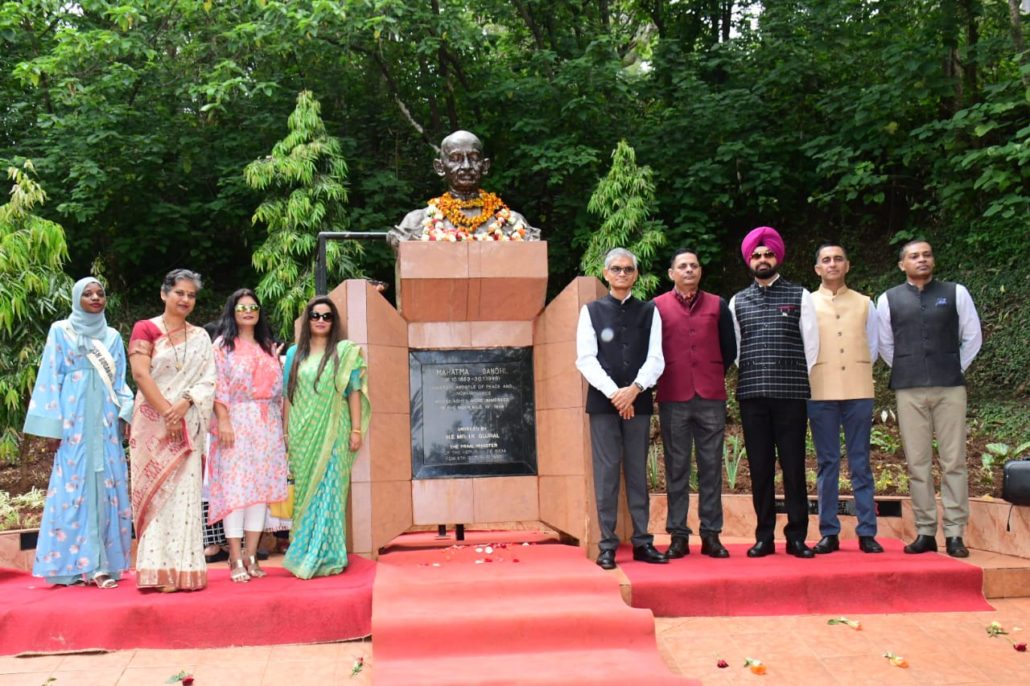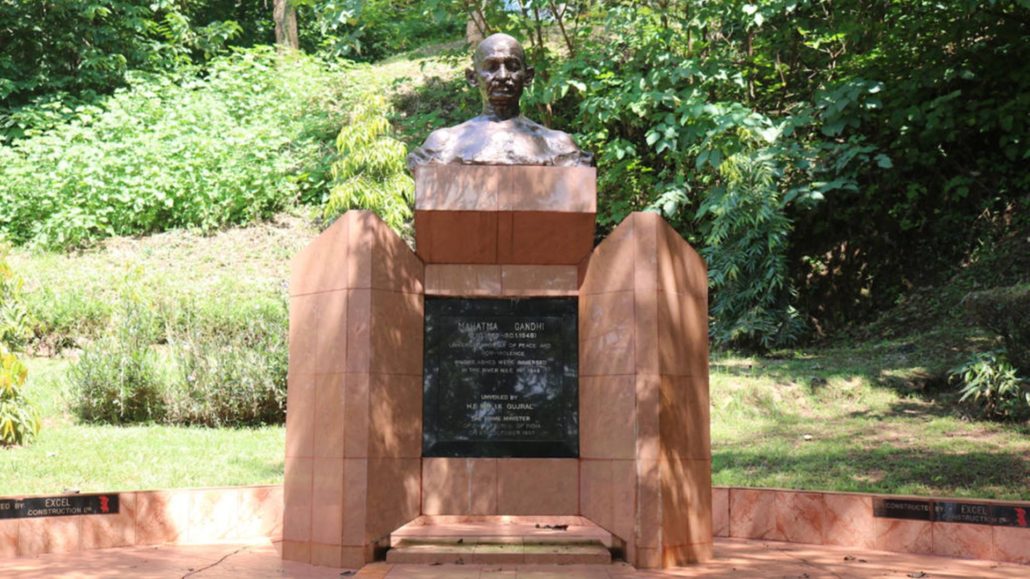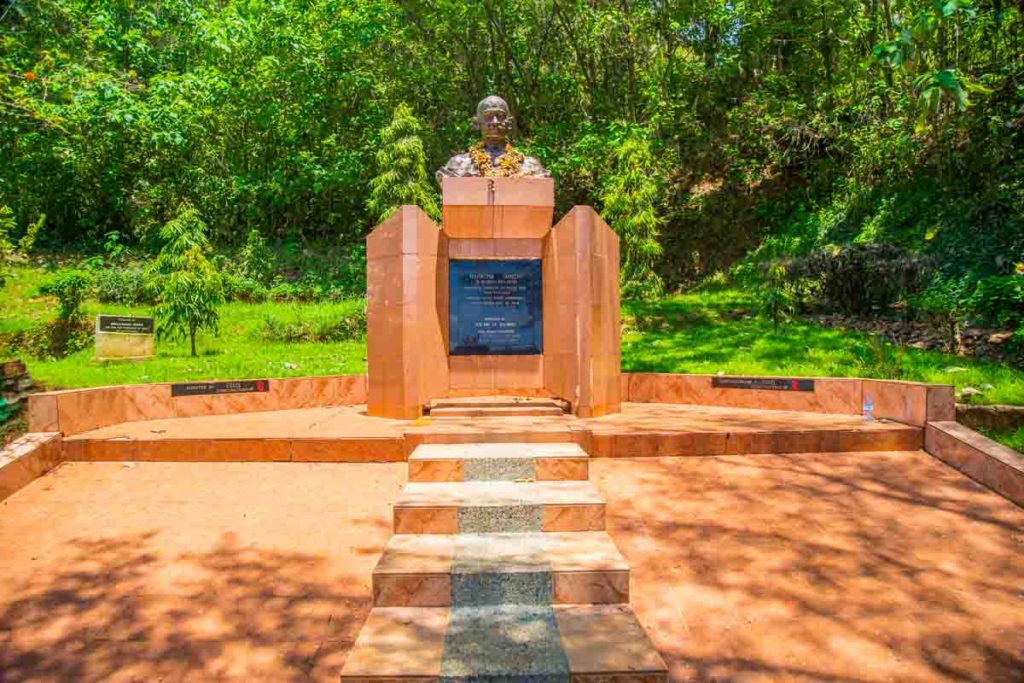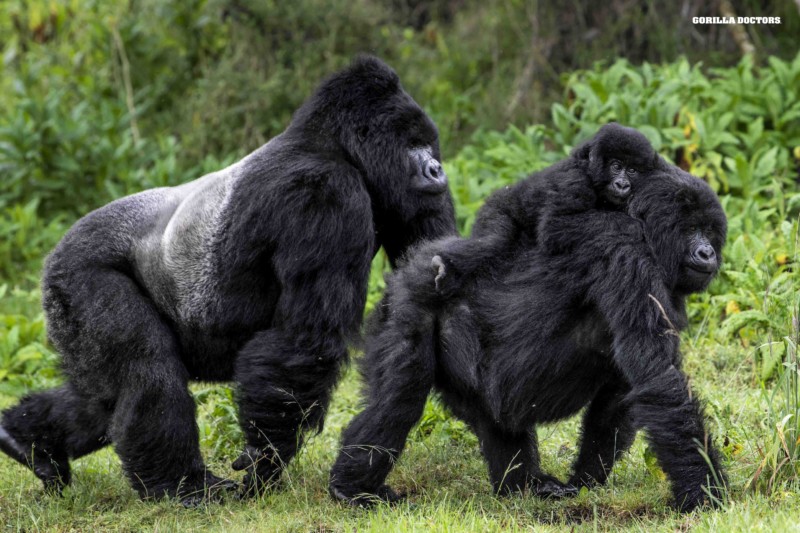Mahatma Ghandhi Monument in jinja
Mahatma Ghandhi Monument in jinja An unexpected discovery at the Nile’s source is a Mahatma Gandhi Manument. Following his death in 1948, his ashes were dispersed according to his intentions in a number of the world’s main rivers, including the Nile in Uganda.

The Indian government donated this bronze bust to honor the deed. On Thursday, Vice-President Hamid Ansari honored Mahatma Gandhi with flowers at the Nile River source in Jinja, Uganda, where a portion of his mortal bones were submerged in 1948.The Father of the Nation was praised by Ansari as one of the most important bridges connecting India and Africa. Ansari, who arrived in Uganda on February 21, gave flowers to the Mahatma bust in Jinja, the center of the Indian population in Uganda, and then planted a seedling.
In 1997, the Indian government installed the bust and Prime Minister IK Gujral gave it his official opening. It is seated in a contemplative position in cool surroundings and lush vegetation. “Universal apostle of peace and non-violence, whose ashes were immersed in the River Nile in 1948,” is written on the plaque below. Later, Ansari toured the Nile River’s source accompanied by his wife Salma, Union minister of state for social justice and empowerment Vijay Sampla, and four members of parliament, Kanimozhi, Ranvijay Singh Judev, Ranee Narah, and PK Biju. As part of his two-nation tour to Africa, Ansari is currently in Uganda. On his initial leg of the tour, he went to Rwanda. This visit aims to deepen India’s relationship with Africa as it is the country’s first bilateral trip to Uganda since 1997.

Gandhi’s ideas continued to be a resounding theme in Ansari’s speeches, particularly the one he gave at the University of Rwanda, when he underlined the connection between the fight against prejudice and the anti-colonialism movement. “Africa’s role in inspiring our struggle for national liberation is something for which India is eternally grateful.” Mahatma Gandhi established and first applied the ideas of peaceful resistance and non-violence on this continent, which ultimately led to India’s independence, he stated.








